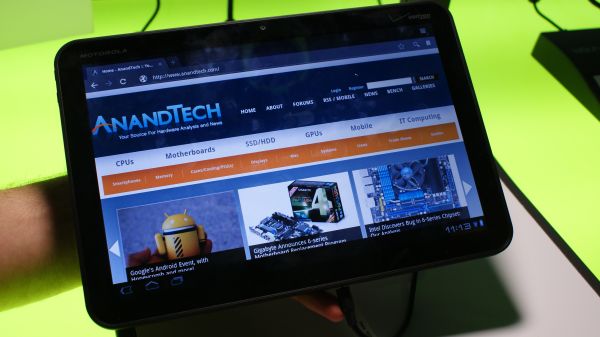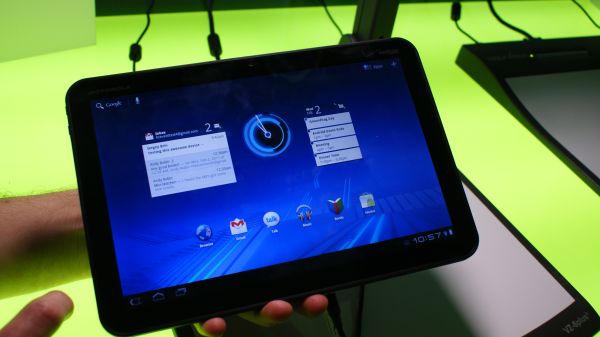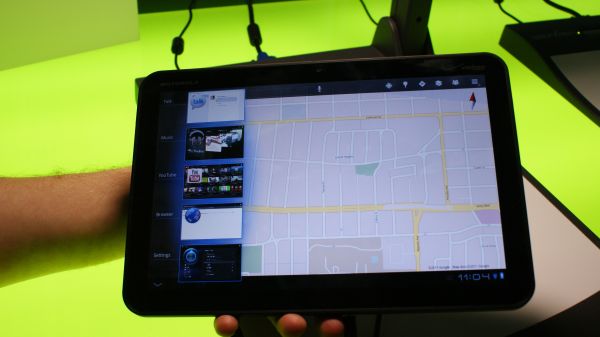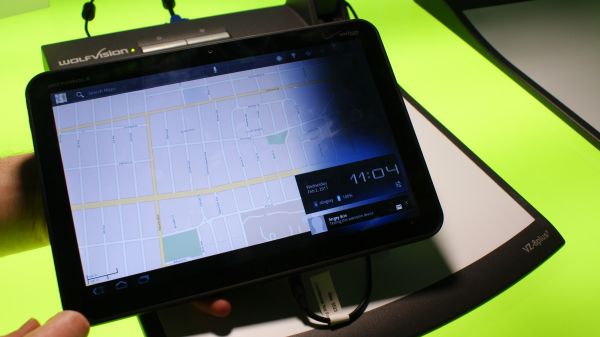Google's Android Event Analysis
by Mithun Chandrasekhar on February 2, 2011 4:26 PM ESTGoogle teased us (actually, more like flooded!) with what Honeycomb had to offer and multiple tablet announcements at CES last month. Today was more of a detailed look at what Honeycomb was about and what new features and paradigms it brings to the tablet form-factor. Also, unlike the Xoom tablets at CES which just looped demo videos, we got to see Xoom's running Honeycomb firsthand, although it was a 'supervised' hands-on.
I confirmed this with Google; Honeycomb, atleast in the current form, will not be coming to non-tablet devices. But that being said, I was told that features from Honeycomb will definitely trickle down to smartphone OSes and Google actually built Honeycomb with this in mind. I will elaborate a bit more on this later, but after seeing the demos, I can already make a sizeable list of Honeycomb features that Google needs to bring over to the smartphone version of Android ASAP.
Honeycomb + Xoom is Google's straight up answer to the iOS + iPad. Yes, although Google didn't say this openly or brand the Xoom as a 'Nexus' device, talking to people around did confirm my initial impressions that the Xoom is infact the halo device for Honeycomb and Google did work quite closely with Motorola on it. I will mainly be talking about Honeycomb and what it brings to the party; you can find specific information about the Xoom itself here, and here. Plus, we'll go more in-depth when we review the Xoom later.
Honeycomb (Android 3.0 from here on) is a pretty massive departure from previous iterations of Android. It is quite clear that Android 3.0 is built from the ground-up keeping the tablet form-factor and the resulting use-cases in mind. It makes very good use of the screen real estate at its disposal. The widgets displayed on the homescreen aren't just static snippets of the app they belong to; the mail widget for example, let's you sift and scroll through your inbox without having to enter the app itself. It's great to have your calendar, inbox and contact list, all displayed and available for use in the same location.
(Top left) Widgets on the homescreen, (Top right) the multitasking pane, (Bottom) Notifications
The second major update is to the multi-tasking aspect of Android. While Android has always supported multi-tasking in some form, it was very similar to the way Symbian handles it; the OS let's you know what other apps are running in the background if you explicitly ask it. As a result, your usage behavior makes you switch apps only when you have to, not when you want to. With 3.0, Android brings multitasking to the forefront much the same way webOS does. Pressing the multitask icon on the bottom left corner of the screen brings up a verticle pane of mini-windows, each representing an app (similar to the cards in webOS). Using this pane, you can easily get in and out of apps running in the background. This is a definite and marked improvement over how Android handles multitasking currently and is one of the features that hopefully gets ported over to Android on smartphones.
The next feature that Android brings along in its latest iteration is a redesigned (and less obtrusive) notifications system. You now get notification pop-ups in the bottom right corner of the screen which you may or may not choose to acknowledge/act upon. You don't get interrupted with a jarring pop-up in the middle of the screen. And the features demoed seemed to make good use of the notifications in Android 3.0. This is another feature that should definitely be ported over to smartphones.




















22 Comments
View All Comments
banvetor - Thursday, February 3, 2011 - link
I'm sorry, but this does not tell me much... I was really hoping for Android 3.0 having the usability improvements that apparently it does, but I would very much like it on my smartphone, even because I don't plan on buying a tablet anytime soon.Anyway, I was even considering a Nexus S right now with the hope that it would soon be updated to 3.0, and have all the improvements... but I guess I will now wait for Google's confirmation of what's in fact coming to smartphones!
One final note: it just seems weird that they will "forever" keep smartphones on 2.x and tablets on 3.x... just a thought.
ET - Thursday, February 3, 2011 - link
My guess is that they'll merge them in version 4. I don't expect any current (or near future) phone to ever get more than 2.x. But that's just my guess. As you say, it's a good idea to wait for announcements of future phone OS versions, if that's what's holding you from buying a phone. I'll probably buy one anyway and stay behind on 2.2.BigToque - Thursday, February 3, 2011 - link
I think it would be silly to keep the two separate. Both the smartphones and tablets are sufficiently similar.I think a good approach is to possibly market two different versions of the same thing and just change how the system is tuned. (Similar to the way Windows works with the desktop/server versions of the OS)
wolfman3k5 - Wednesday, February 2, 2011 - link
This is just the beginning, but Google is branching out into the pharmaceutical and health care industries as well. Google has just acquired the cosmetology division of Procter & Gamble, dubbed "Pharma One", which specializes in hair growth products. This is just as small step in a new direction. Right now Google is only probing, like they always do. I'm bringing this up because I know that Anand has been looking for a decent hair growth product, and now here it is: it's called OneShu by Pharma One which is now owned by Google. From what I have read, OneShu grows thick - long lasting new hair, and there is also an APP now for Android that tracks hair growth.bplewis24 - Thursday, February 3, 2011 - link
lol...Shadowmaster625 - Thursday, February 3, 2011 - link
Why is it such a pita to get offline map browsing. It's like they go out of their way to prevent you from accessing data that is already stored on your own device. On a windows notebook I can get it to work for a while. But eventually it just "decides" on its own to stop working, even though the 2 gigs of map data is still taking up space on my hard drive.xype - Thursday, February 3, 2011 - link
Scout's promise, the next version will be awesome!It's ugly and it's chaotic and it's been pushed out the door way too fast way too often. Apart from the geekier crowd (who'll either hate or love it with a passion), it will be interesting to see how Android will develop overall.
Somehow I have the feeling that Android will be an iOS Killer™ in the same way that a multitude of random MP3 players were an iPod Killer™.
bplewis24 - Thursday, February 3, 2011 - link
What planet were you living on before you arrived here yesterday?Griswold - Thursday, February 3, 2011 - link
It must have been Planet of the Fools.B3an - Thursday, February 3, 2011 - link
Android is now the biggest selling phone OS in the world after it recently overtook Symbian, the previous king. It overtook iOS some time ago.And it's sales increase is still happening faster than ever, within the next 18 months it will completely dominate iOS.